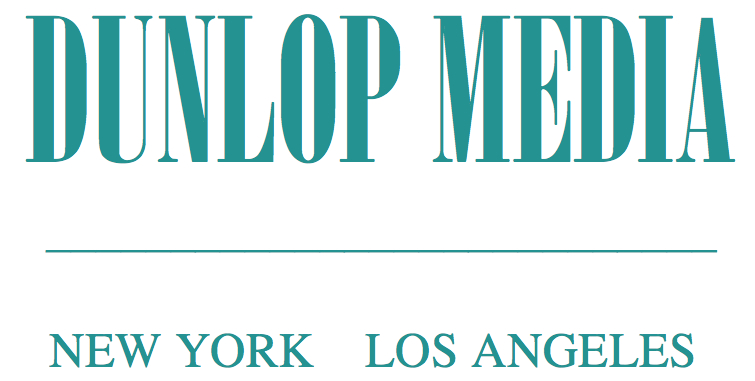Media commentary by Steve Dunlop
We lost a great American inventor last week. Just as we credit Eli Whitney with the cotton gin, Thomas Edison with the lightbulb, and Steve Jobs with the iPhone, Joe Franklin deserves top billing for inventing a staple of modern media: the television talk show.
Name any giant of that genre - Stewart, Fallon, Ferguson, Carson, Letterman, Paar or even the great Steve Allen. They are all derivative. All owe their platform to The Joe Franklin Show, which started on New York's WJZ-TV (now WABC-TV) back in 1950, before almost all of today's hosts were even born. Franklin was still recording interviews for Bloomberg Radio until just a few days before he died.
I worked in two newsrooms down the hall from Joe - the first at WOR Radio, and later at WOR-TV (now WWOR). He was a short man, maybe 5’3”. A smiling ball of energy and a peripatetic fast talker.
There was a blissfully detached happiness about him, as though he was living inside a postwar musical that was playing in his head.
And perhaps he was. Joe actually got his start as a writer for the singer and radio show host Kate Smith, best known to audiences today for her timeless rendition of Irving Berlin's "God Bless America" (the version played at every Yankees home game).
And even before he ventured into early television, Joe had parlayed an abiding love of nostalgia - and a childhood collection of thousands of 78 rpm records - into a career as a young and, at the time, quite well compensated ($1000 a week) radio disc jockey.
"These rare old records can bounce you into the heavy money class," wrote Billboard Magazine in October 1948. "Joe Franklin, 23-year old disk jockey on WMCA, local indie, has already become cognizant of this happy state of affairs."
It was the same routine whenever I bumped into Joe in the long, mocha-wallpapered corridors of WOR. Knowing it was his favorite subject, I would ask how his radio show was doing. With a broad, satisfied smile and a dramatic wave of his right hand, he would proclaim, "FANNN–tastic. You know we're heard in 38 states at night?" Same answer, same statistic, every single time.
“Blissfully detached... as though he was living inside a postwar musical that was playing in his head.”
Franklin's broadcasts, nicknamed Memory Lane, focused originally on nostalgia. On the radio side, that meant conversations ranging from contemporary Hollywood all the way back to the silent film era.
"Joe reinforced for me the right to love those old fashioned vaudevillians, crooners, big bands, silent films, early talkies, old sheet music and records," said Vince Giordano, leader of the New York-based Nighthawks Orchestra and a Big Band era historian. "In my youth I was always attacked for those likes."
But TV was different. Like Steve Jobs, Joe Franklin had the inventor's instinct to do things with his creation that his imitators had either not thought of, or did not dare to try. While the studio sofas of The Tonight Show and The Late Show became populated almost exclusively with the famous and near-famous, Joe stayed unabashedly egalitarian.
"He brooked no distinction in caste or strata," my friend Steve Friedman, veteran photographer for Walter Cronkite, Regis and Kathie Lee, and Phil Donahue, told me. "Robert Mitchum would be on the same panel and couch as a singer appearing in Lodi, Bing Crosby with a Borscht Belt comedian, and a lady cab driver with a talking dog.
"Yet they each were treated the same - democratically, really. 'Miss Cab Driver, what do you think of what Robert Mitchum just said?' he would ask, as Mitchum sat there."
My favorite high camp moment came when Franklin hosted a 1980's era rock group, the J. Geils Band. The members were all "huge fans," and brought a trophy with them to thank Joe for "so many years of allowing people to get a break right here on national television." (WOR-TV was a New York station, but was carried nationally on cable at the time.)
Franklin receiving a tribute from musician J. Geils and two Playboy bunnies after singing his band's hit record, Centerfold, on the Joe Franklin Show in 1982. Image from a video posted on YouTube.
The Joe Franklin/J. Geils love fest struck me as one of the unlikeliest pairings I’d ever seen on television - but then again, Joe specialized in unlikely pairings.
In Joe's later years, Friedman recalled, everybody wanted to be photographed with him. "At these conventions, I had the honor to walk him around - he kind of counted on me - to meet everyone including his former guests. He almost skipped Betsy Palmer once, so I refreshed him, directing him that-a-way, and that was so good for both of them. They hugged and so appreciated each other."
Joe Franklin's final recorded broadcast aired the day he died. It was an interview with Joe Coffey, a New York City detective turned author. Given that Franklin claimed to have hosted some 300-thousand guests over his long career - Frank Sinatra, John Lennon, Bruce Springsteen, Dustin Hoffman, Liza Minnelli, and so many others - it might seem a bit of an anticlimax.
But Joe Franklin invented the talk show realm. He could get away with it.




